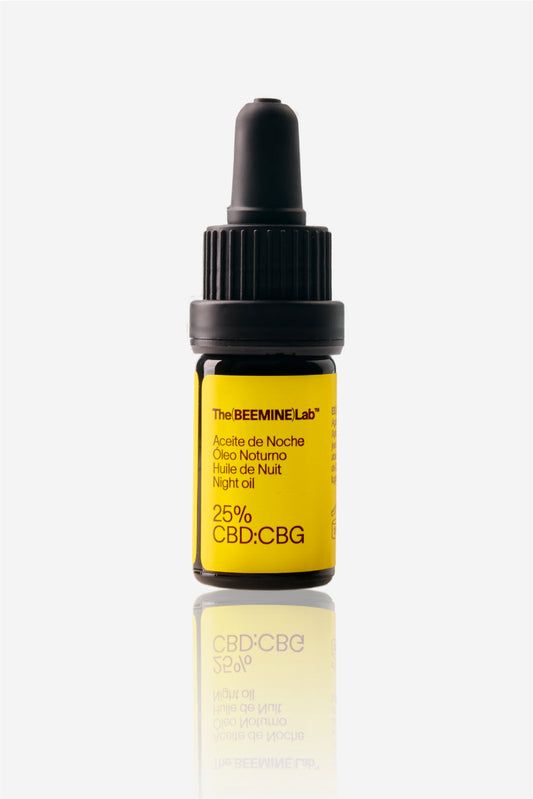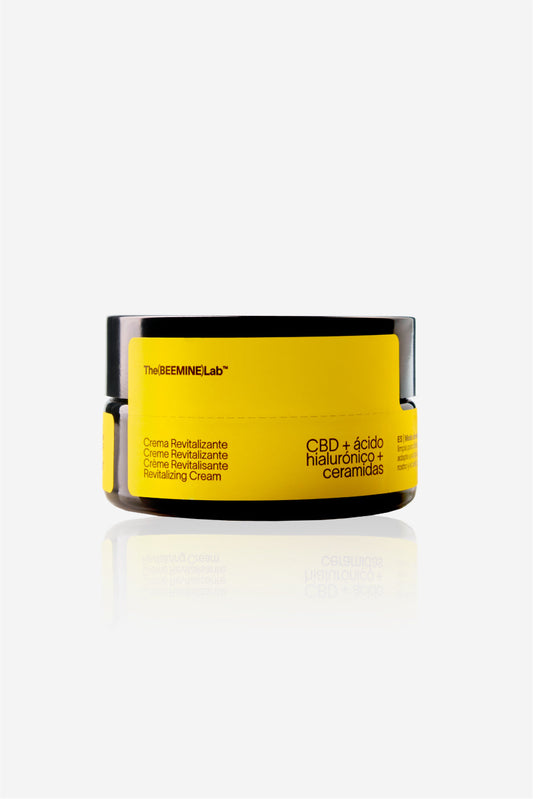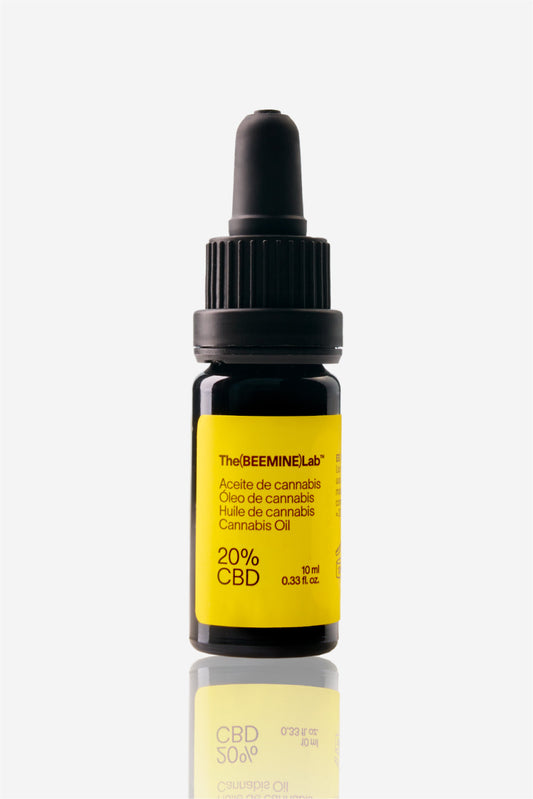CBD vs ibuprofen
In this section we will assess the effects of CBD vs ibuprofen , the most commonly used medication to combat inflammatory effects and body discomfort. Many people turn to ibuprofen when they have some kind of discomfort or inflammation in their body. Its effectiveness is more than proven, although like any medical medication, it should not be abused unless prescribed by a doctor. CBD has become an alternative for those who suffer from inflammation and chronic pain and do not want to consume chemical medications.But can CBD really be a substitute for ibuprofen?
Ibuprofen has a more immediate effect (or at least the effects are noticeable in a shorter period of time) but CBD remedies require a longer exposure in the body to be able to have their effects. However, this will depend on the dose used. It should also be noted that medications cause you to become accustomed to them and lose their effectiveness after prolonged use, as is the case with ibuprofen. However, this is not the case with CBD and increasing the dosage does not pose as much of a risk to your health as if you were using ibuprofen. In short, CBD oil and its derivatives can help in treatments for pain and inflammation over a longer period of time, while ibuprofen will provide relief at specific times and more quickly. In any case, if you are going to use CBD as an anti-inflammatory , it is best to have the advice of a medical professional.
CBD anti-inflammatory properties
There are certain ailments or diseases that, after a scientific study, have shown that their consequences and effects on the body can be minimized by using cannabidiol as an anti-inflammatory . Some cases in which CBD is anti-inflammatory :- Rheumatic diseases with mild and annoying inflammatory involvement. The use of CBD creams helps transdermal absorption in the areas affected by pain.
- Allergic dermatitis where allergens cause inflammation and redness. CBD oil can be applied to soothe the painful and itchy area.
- Arthritis . It is a chronic inflammation of the joints, so the continued use of CBD is able to relieve the pain and discomfort caused by this disease.
- Problems in the pancreas where anti-inflammatory drugs are not as effective. However, cannabidiol has been shown to minimize inflammation and allow pancreatic tissue to regenerate more effectively.
- Irritable bowel syndrome , where CBD can provide better digestive effects than the use of chemical drugs, largely because CBD is a natural element.
- The pain is considerably reduced.
- Anxiety levels caused by pain disappear.
- The muscles relax and untangle.
- Reduce inflammation from external injuries.
CBD oil for inflammation
And you're probably wondering what happens if the inflammation is internal. Well, you can also take CBD oil , capsules, infusions, gummies, etc. Although it should always be supervised by a medical professional. CBD oil can help relieve pain and inflammation with fewer side effects than taking ibuprofen, both in the short and long term. CBD oils are one of the most common compounds used by people today. This is because it allows for better and more effective dosing, as well as a long shelf life. The texture of CBD is very similar to other oils , although alcohol is used as a carrier instead of oil. This makes it have a longer shelf life and makes it easier for herbalists and naturopaths to mix it with other herbs or essential oils with anti-inflammatory properties among its components. However, this oil with alcohol cannot be ingested. To take CBD for inflammation , simply measure the recommended or desired dose with the dropper that contains the product and place it under the tongue to achieve a rapid effect, or ingest it to achieve a slower and more controlled effect. It is generally estimated that orally taken oils and sprays are absorbed into the bloodstream in an average of 10 to 45 minutes.CBD Anti-Inflammatory Cream
When using CBD as an anti-inflammatory , we must take into account where the inflammation is located. Swelling and irritation in external areas caused by rashes or injuries can be treated with CBD ointments, lotions or creams applied directly to the affected area. Any skin inflammation also benefits from ingesting CBD oil. However, the most common method of treatment is topical (on the skin). This allows the cannabidiol to concentrate in the affected local tissues. We can use anti-inflammatory cannabidiol topically in cases of:- Psoriasis.
- Allergic dermatitis.
- Muscle injuries.
- Skin infections.
- Eczema.
- Acne
- Tendinitis
- Fatouros, I., & Jamurtas, A. (2016). Insights into the molecular etiology of exercise-induced inflammation: opportunities for optimizing performance. Journal of Inflammation Research, 9 , 175 – 186.
- McCartney, D., Benson, M.J., Desbrow, B. et al. Cannabidiol and Sports Performance: a Narrative Review of Relevant Evidence and Recommendations for Future Research. Sports Med – Open 6, 27 (2020). https://sportsmedicine-open.springeropen.com/articles/10.1186/s40798-020-00251-0
- Langer, H.T., Mossakowski, A.A., Pathak, S., Mascal, M.J., & Baar, K. (2021). Cannabidiol does not impair anabolic signaling following eccentric contractions in rats. International journal of sport nutrition and exercise metabolism , 31 (2), 93-100. https://journals.humankinetics.com/view/journals/ijsnem/31/2/article-p93.xml
- Kogan NM, Melamed E, Wasserman E, et al. Cannabidiol, a Major Non-Psychotropic Cannabis Constituent Enhances Fracture Healing and Stimulates Lysyl Hydroxylase Activity in Osteoblasts. Journal of Bone and Mineral Research: the Official Journal of the American Society for Bone and Mineral Research. 2015 Oct;30(10):1905-1913. DOI: 10.1002/jbmr.2513.
- Cruz, Candelaria. (2020). The effects of Cannabidiol (CBD) on Perceived Muscle Soreness, Inflammation, and Performance after Bouts of Eccentric Exercise of the Elbow Flexors.
- Cochrane-Snyman KC, Cruz C, Morales J, Coles M. The Effects of Cannabidiol Oil on Noninvasive Measures of Muscle Damage in Men. Medicine and Science in Sports and Exercise. 2021 Jul;53(7):1460-1472. DOI: 10.1249/mss.0000000000002606.
- Kasper, A.M., Sparks, S.A., Hooks, M.C., Skeer, M., Webb, B., Nia, H., Morton, J., & Close, G. (2020). High Prevalence of Cannabidiol Use Within Male Professional Rugby Union and League Players: A Quest for Pain Relief and Enhanced Recovery. International journal of sport nutrition and exercise metabolism , 1-8.
- Pellati, Federica & Borgonetti, Vittoria & Brighenti, Virginia & Biagi, Marco & Benvenuti, Stefania & Corsi, Lorenzo. (2018). Cannabis sativa L. and Nonpsychoactive Cannabinoids: Their Chemistry and Role against Oxidative Stress, Inflammation, and Cancer. BioMed Research International. 2018. 1-15. 10.1155/2018/1691428.
- Burstein S. Cannabidiol (CBD) and its analogs: a review of their effects on inflammation. Bioorganic & Medicinal Chemistry. 2015 Apr;23(7):1377-1385. DOI: 10.1016/j.bmc.2015.01.059.
- Hobbs, Jack & Vazquez, Allegra & Remijan, Nicholas & Trotter, Roxanne & McMillan, Thomas & Freedman, Kimberly & Wei, Yuren & Woelfel, Keith & Arnold, Olivia & Wolfe, Lisa & Johnson, Sarah & Weir, Tiffany. (2020). Evaluation of pharmacokinetics and acute anti?inflammatory potential of two oral cannabidiol preparations in healthy adults. Phytotherapy Research. 34. 10.1002/ptr.6651.
- Sangiovanni, E., Fumagalli, M., Pacchetti, B., Piazza, S., Magnavacca, A., Khalilpour, S., Melzi, G., Martinelli, G., & Dell'Agli, M. (2019) . Cannabis sativa L. extract and cannabidiol inhibit in vitro mediators of skin inflammation and wound injury. Phytotherapy research : PTR, 33(8), 2083–2093. https://doi.org/10.1002/ptr.6400







